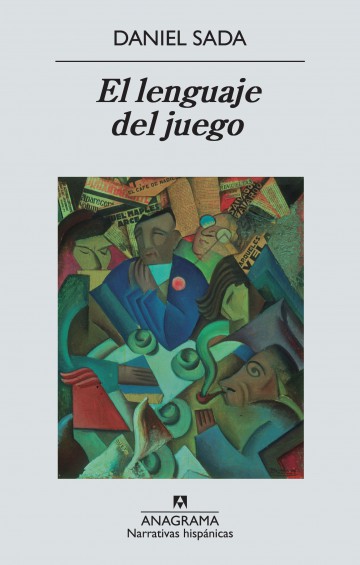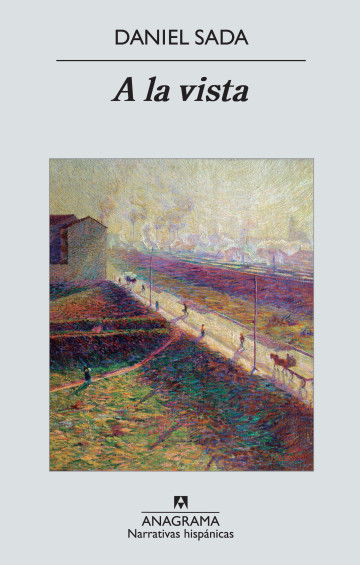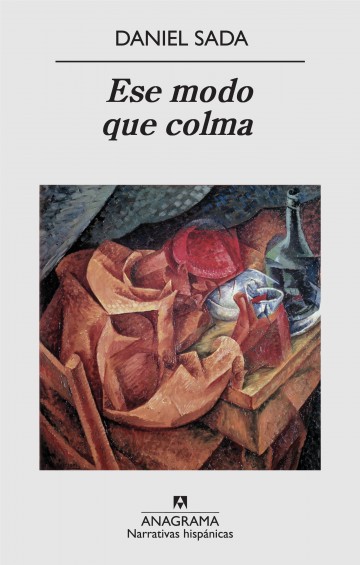| PAGES | 384 |
| SERIES | Narrativas hispánicas |
| PUBLICATION | 03/11/2008 |

SERIES:Narrativas hispánicas
This Rabelaisian tale of lust and longing in the drier precincts of post-war Mexico introduces one of Latin America’s most admired writers to the English-speaking world.
Demetrio Sordo is an agronomist who passes his days in a dull but remunerative job at a ranch near Oaxaca. It is 1945, World War II has just ended, but those bloody events have had no impact on a country that is only on the cusp of industrializing. One day, more bored than usual, Demetrio visits a bordello in search of a libidinous solution to his malaise. There he begins an all-consuming and, all things considered, perfectly satisfying relationship with a prostitute named Mireya.
A letter from his mother interrupts Demetrio’s debauched idyll: she asks him to return home to Northern Mexico to accompany her to a wedding in a small town on the edge of the desert. Much to his mother’s delight, he meets the beautiful and virginal Renata and quickly falls in love—a most proper kind of love.
Back in Oaxaca, Demetrio is torn, the poor cad. Naturally he tries to maintain both relationships, continuing to frolic with Mireya and beginning a chaste correspondence with Renata. But Mireya has problems of her own—boredom is not among them—and concocts a story that she hopes will help her escape from the bordello and compel Demetrio to marry her. Almost Never is a brilliant send-up of Latin American machismo that also evokes a Mexico on the verge of dramatic change.
Casi nunca is possibly the best novel so far by this great Mexican author, one of the most admired writers in contemporary Latin American fiction.
«A writer who is profoundly close to the essence of man» -Álvaro Mutis
«Sada will be a revelation for world literature» –Carlos Fuentes
«Of my generation I most admire Daniel Sada, whose writing project seems to me the most daring» –Roberto Bolaño
| PAGES | 384 |
| SERIES | Narrativas hispánicas |
| PUBLICATION | 03/11/2008 |
TRANSLATION RIGHTS SALES
- USA (Graywolf Press)
- France (Editions L'Olivier)
- Italy (Del Vecchio)


Daniel Sada (Mexicali, Mexico, 1953 - D.F. 2011) studied journalism. He has published the short story collections Juguete de nadie y otras historias (1985), Registro de causantes (1992, Premio Xavier Villaurrutia), El límite (1996), and the novels Lampa vida (1980), Albedrío (1988), Una de dos (1994), which was made into a film in 2002, Porque parece mentira la verdad nunca se sabe (1999, Premio José Fuentes Mares), which achieved enormous critical and commercial success and was considered an important moment in the history of Mexican fiction; Luces artificiales (2002), Ritmo Delta (2005, Premio de Narrativa Colima) and La duración de los empeños simples (2006). Daniel Sada has received numerous plaudits: «He is much more than a storyteller, he is a prose experimentalist. To call him a stylist would be limiting. In fact, he is one of the most extreme formalists of our language, the bravest Mexican writer working today» (Rafael Lemus, Letras Libres); «A narrator who is profoundly close to the essence of man.» (Álvaro Mutis); «Sada renewed the Mexican novel with Porque parece mentira la verdad nunca se sabe.» (Juan Villoro); «In every line of each book, during many years, Daniel Sada has shown himself to be the consummate novelist of his generation. Few like him are so stubbornly in love with the form of words, which he gilds—so rarely for novelists these days—with gold» (Christopher Domínguez Michael); «Daniel Sada will be a revelation for world literature» (Carlos Fuentes); Daniel Sada, without doubt, is writing one of the most ambitious bodies of work in Spanish, comparable only with the work of Lezama; although the baroque of Lezama, as we know, takes place in the tropics—a place that lends itself well to the baroque form—and Sada’s occurs in the desert.» (Roberto Bolaño).





